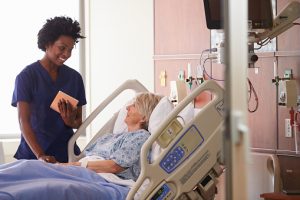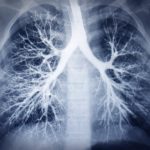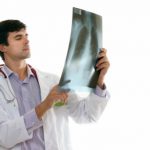 Hospital-acquired pneumonia (HAP) is a type of pneumonia that is contracted during one’s stay in a hospital – typically occurring within 48 hours. Common bacteria that cause it include ram-negative bacilli and Staphylococcus aureus. Hospital-acquired pneumonia is particularly dangerous as it is often resistant to antibiotics.
Hospital-acquired pneumonia (HAP) is a type of pneumonia that is contracted during one’s stay in a hospital – typically occurring within 48 hours. Common bacteria that cause it include ram-negative bacilli and Staphylococcus aureus. Hospital-acquired pneumonia is particularly dangerous as it is often resistant to antibiotics.
The risk for hospital-acquired pneumonia can be quite high for some patients, as they are already sick and their immune systems are often weak from fighting off another illness. Hence, preventative measures are of utmost importance for lowering the risk of hospital-acquired pneumonia to avoid further health complications.
Signs and symptoms of hospital-acquired pneumonia
Advertisement
Signs and symptoms of hospital-acquired pneumonia include the following:
- Persistent cough (you may cough up greenish or yellow mucus, or even bloody mucus)
- Fever, which may be mild or high
- Sweating and shaking chills
- Chest pain
- Shortness of breath, which may only occur when you climb stairs
- Fatigue
- Nausea, vomiting, or diarrhea
Seniors over 65 and people in poor health may have a lower body temperature. Older people can also experience sudden changes in mental awareness. Hospital-acquired pneumonia can even be a life-threatening to seniors.
Hospital-acquired pneumonia causes
 Pneumonia is a lung infection, which inflames the air sacs in one or both lungs. Have you heard about fluid in the lungs and difficulty breathing? With pneumonia, the inflamed air sacs can fill with fluid or pus, causing all the coughing and phlegm – often chronic symptoms of pneumonia in adults.
Pneumonia is a lung infection, which inflames the air sacs in one or both lungs. Have you heard about fluid in the lungs and difficulty breathing? With pneumonia, the inflamed air sacs can fill with fluid or pus, causing all the coughing and phlegm – often chronic symptoms of pneumonia in adults.
How does this happen? A number of organisms, most commonly bacteria, viruses, and fungi, get into our system, usually through the air we breathe. A strong immune system is essential for resisting the infection, particularly for seniors and others at higher risk.
The following are the most common causes of pneumonia:
- Bacteria:In the United States, the most common cause of bacterial pneumonia is Streptococcus pneumoniae. It happens on its own, or takes hold after you’ve had a cold or flu when your defenses are down. This type may affect one part or lobe of the lung, resulting in a condition known as lobar pneumonia.
- Bacteria-like organisms:These organisms are called mycoplasma pneumoniae and bring on milder symptoms. So if you have “walking pneumonia” and don’t feel so rough you have to stay in bed, these organisms are likely the culprit.
- Viruses:Some of those same pesky viruses that cause cold and flu can cause pneumonia. These are most common in children under five, and symptoms usually are milder.
- Fungi:The fungi that can cause pneumonia are found in soil and bird droppings. They get in the air, so we can breathe them in as well. This pneumonia is more common in people with other diseases or compromised immune systems.
Further, there is hospital-acquired pneumonia and healthcare center-acquired pneumonia, both of which can be more serious because the bacteria causing these often are resistant to antibiotics.
Hospital-acquired pneumonia is a type of pneumonia that is acquired within 48 hours of your hospital stay. It is primarily caused by bacteria, and patients with hospital-acquired pneumonia usually present with a combination of fever (or hypothermia), leukocytosis (or leukopenia), increased tracheal secretions, and poor oxygenation.
Related: Is Pneumonia Contagious?
Risk factors for hospital-acquired pneumonia
The main risk factor for hospital-acquired pneumonia is simply staying in a hospital. Patients who are more susceptible to contracting hospital-acquired pneumonia during their stay may have some of the following risk factors:
- Abusing alcohol
- Having had chest or another major surgery
- Having a weakened immune system
- Having a chronic lung condition – asthma, COPD
- Breathing saliva or food into their lungs – this could occur after a stroke
- Being older in age
- Being a smoker
Hospital-acquired pneumonia diagnosis

Hospital-acquired pneumonia is diagnosed with the presentation of symptoms while being in a hospital. Your doctor may also run other tests to confirm diagnosis. Diagnostic tests for hospital-acquired pneumonia include arterial blood gases, blood cultures, chest X-ray, CT scan, complete blood count, pulse oximetry (measures oxygen in the blood), and sputum culture.
Hospital-acquired pneumonia treatment
Treatment for hospital-acquired pneumonia includes antibiotics administered intravenously, oxygen to assist with breathing, and a ventilator to support breathing.
Hospital-acquired pneumonia prevention
 If you are visiting someone in a hospital, you can also employ some preventative measures reduce their risk of developing hospital-acquired pneumonia. Wash your hands frequently. Use hand sanitizer. If you are sick with a cold or flu, postpone your visit until you get better.
If you are visiting someone in a hospital, you can also employ some preventative measures reduce their risk of developing hospital-acquired pneumonia. Wash your hands frequently. Use hand sanitizer. If you are sick with a cold or flu, postpone your visit until you get better.
Surgeons and doctors often recommend to their patients who have undergone a surgery to move around often in order to keep their lungs clear as another prevention method against hospital-acquired pneumonia.
Lastly, many hospitals have protocols in place to lower incidence rates of hospital-acquired pneumonia.
Related Reading:
Bronchitis Home Remedies: Natural Treatment and Prevention
Bronchitis is characterized by shortness of breath and a cough that can wake up the neighborhood, but the good news is, it can be treated with natural remedies. Continue reading…
Advertisement
Is bronchitis contagious? Types and symptoms of bronchitis
Bronchitis or inflammation of the bronchi, which carry air to the lungs, is a common condition, so people wonder, is bronchitis contagious? The answer is not cut and dry – it really depends on the type of bronchitis. Continue reading…
Sources:
http://www.merckmanuals.com/professional/pulmonary-disorders/pneumonia/hospital-acquired-pneumonia
http://bestpractice.bmj.com/best-practice/monograph/720.html
http://www.everydayhealth.com/pneumonia/guide/
https://medlineplus.gov/ency/article/000146.htm
